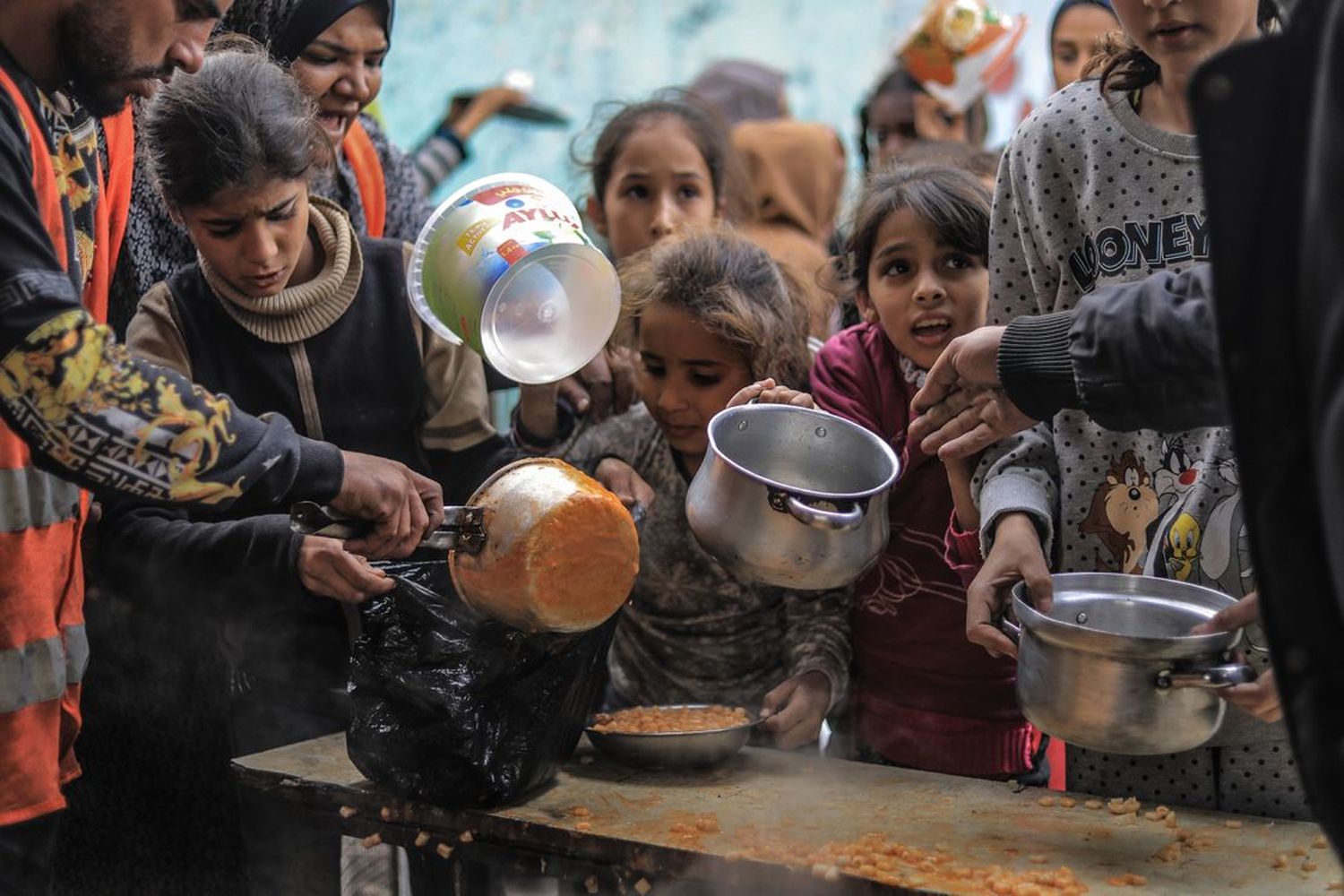Gaza War
Famine in Northern Gaza Imminent as Over 1 Million Face 'Catastrophic' Hunger
TEL AVIV, Israel — A dire warning has been issued by the world's leading authority on hunger, the Integrated Food Security Phase Classification (IPC), stating that famine is "imminent" in northern Gaza. The IPC's alarming report indicates that more than 1 million people are facing 'catastrophic' levels of hunger, with the situation rapidly approaching a crisis point.
The IPC, which has only classified a famine twice since its inception in 2004, defines famine as an extreme deprivation of food, where starvation, death, destitution, and extremely critical levels of acute malnutrition are evident. The report highlights that the entire population of the Gaza Strip, which exceeds 2 million people, is already grappling with high levels of acute food insecurity.
In northern Gaza, where approximately 300,000 individuals remain, famine conditions may be days or weeks away. Central and southern Gaza are also at risk, with 'catastrophic' levels of famine projected by July if the current trajectory continues.
The report has detailed that acute malnutrition among children below five years is surging at an unprecedented pace, with one in three children below the age of two in North Gaza now acutely malnourished. This puts them at a heightened risk of death. The situation is exacerbated by the fact that 1.1 million people in Gaza have completely exhausted their food supplies, marking the highest number ever recorded as facing catastrophic hunger by the IPC system.
The crisis has been described as "entirely man-made" and "preventable," with the Israeli authorities having curtailed the amount of aid entering Gaza since October last year. This followed an incident where Hamas-led militants stormed southern Israel, resulting in significant casualties.
Aid agencies have stressed that the quickest way to avert hunger is for Israel to open more border crossings with Gaza and allow more relief to enter. However, the delivery of aid has been fraught with challenges, including Israeli inspections on aid trucks and the lack of security in Gaza, which have made deliveries increasingly difficult.
The World Food Programme (WFP) estimates that addressing the basic food needs will require at least 300 trucks to enter Gaza daily, particularly in the north. However, the WFP has managed to take only a handful of convoys to the north since the start of the year.
The report has called for an immediate humanitarian ceasefire to halt the famine. It emphasizes that full access must be facilitated for aid organizations to provide water, nutrition products, medicines, health, and sanitation services at scale to the entire civilian population.
The United Nations Secretary-General Antonio Guterres has responded to the findings, stating that this is an "entirely man-made disaster" that can be halted, and underscored the need for an immediate humanitarian ceasefire.
As the international community grapples with the findings of the report, the situation in Gaza remains precarious, with the threat of famine looming large and the need for immediate and sustained humanitarian intervention more urgent than ever.

